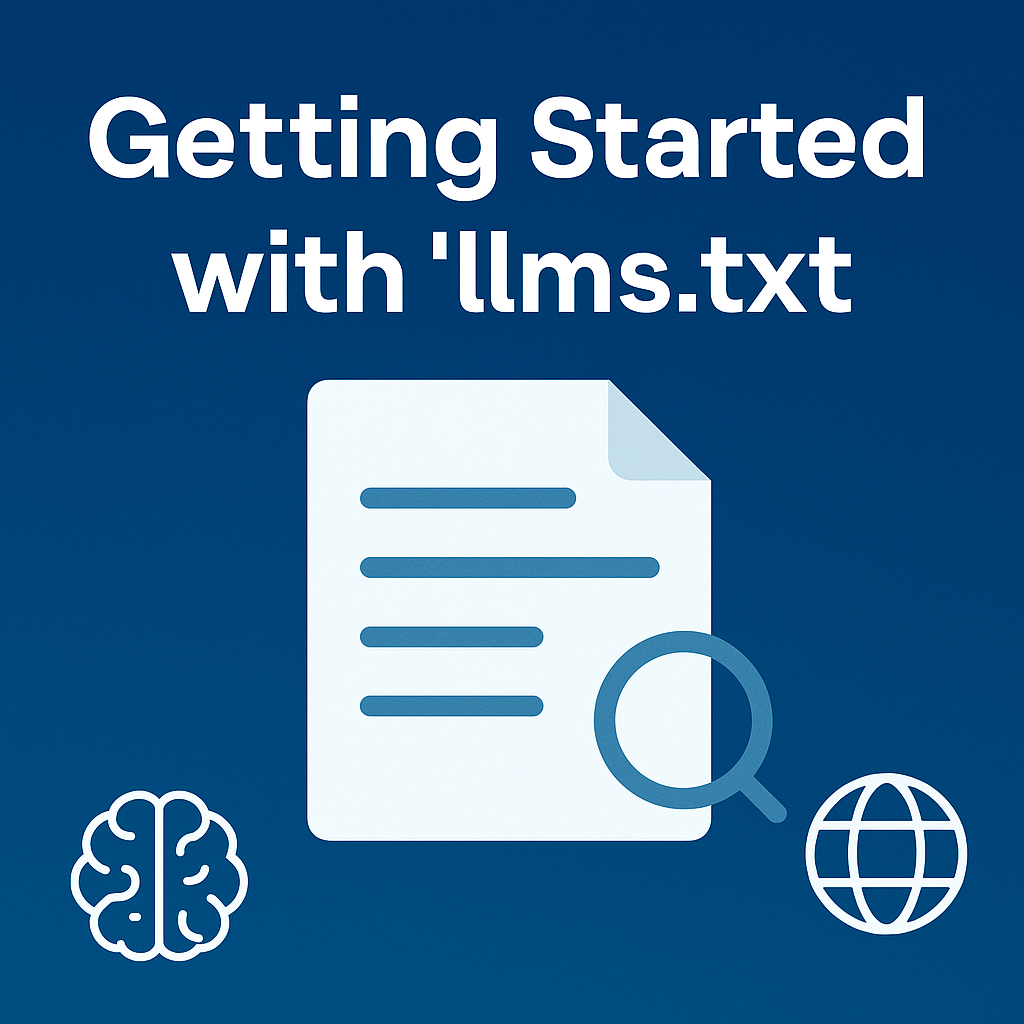Creating SEO-rich pages is a priority for content creators, marketers, and developers alike. One underrated trick to improve visibility in search results is using FAQ Schema Markup — a type of structured data that helps Google understand the questions and answers on your web page.
However, writing JSON-LD for dozens of FAQs manually is tedious. Wouldn’t it be great if you could just write your questions and answers in a text file — and let Python do the rest?
That’s exactly what this guide is about.
What You’ll Learn
In this tutorial, you’ll learn how to:
-
Write your FAQs in a simple
.txtformat -
Upload and process them in Google Colab
-
Automatically generate a valid JSON-LD FAQ schema
-
Download the output for direct use in your website
What is FAQ Schema?
FAQ Schema is a structured data format defined by schema.org that allows search engines to identify frequently asked questions and their answers on a web page. When implemented correctly, it can trigger rich snippets in search results like this:
Q: What is your return policy? A: You can return items within 30 days.
This increases click-through rates, builds trust, and improves SEO visibility.
Preparing Your FAQ Content in a Text File
We’re going to use a plain .txt file as our data source. Each question ends with a ?, and the answer spans one or more lines directly after the question.
Formatting Rules:
-
Each question must be on a separate line ending in
? -
The answer may contain multiple lines, but should end with a
.(period) -
There can be multiple Q&A blocks without blank lines in between
Sample faq.txt Input:
What is your return policy? You can return items within 30 days for a full refund. Items must be unused and in original packaging. Do you ship internationally? Yes, we ship to over 100 countries. Delivery time depends on your location. How can I track my order? We will send a tracking link via email. You can also track it in your account dashboard.
Why Use Google Colab?
Google Colab is a free cloud-based Jupyter notebook environment that:
-
Requires no installation
-
Runs Python in your browser
-
Supports file uploads, visualization, and downloads
Perfect for running quick scripts like this one!
Tools and Libraries Used
| Library | Purpose |
|---|---|
json |
Create JSON-LD structured output |
google.colab.files |
Upload and download files in Colab |
IPython.display |
Show Markdown-formatted output in Colab |
These are built-in or automatically available in Colab — no external installations required.
Step-by-Step: Python Script to Generate FAQ JSON-LD
Now let’s write the script in Google Colab. Create a new notebook, and paste this entire block into a cell.
import json
from google.colab import files
from IPython.display import display, Markdown
# Step 1: Upload the .txt file
uploaded = files.upload()
file_name = list(uploaded.keys())[0]
# Step 2: Parse line-by-line format (Q ends with '?', A spans multiple lines until next Q)
def parse_faq_lines(file_path):
faqs = []
with open(file_path, "r", encoding="utf-8") as f:
lines = [line.strip() for line in f if line.strip()]
current_question = None
current_answer_lines = []
for line in lines:
if line.endswith("?"):
# Save previous Q&A
if current_question and current_answer_lines:
answer_text = " ".join(current_answer_lines).strip()
last_dot = answer_text.rfind(".")
if last_dot != -1:
answer_text = answer_text[:last_dot+1].strip()
faqs.append((current_question, answer_text))
# Start new question
current_question = line
current_answer_lines = []
else:
current_answer_lines.append(line)
# Save the last Q&A
if current_question and current_answer_lines:
answer_text = " ".join(current_answer_lines).strip()
last_dot = answer_text.rfind(".")
if last_dot != -1:
answer_text = answer_text[:last_dot+1].strip()
faqs.append((current_question, answer_text))
return faqs
# Step 3: Generate JSON-LD
def generate_faq_schema(faqs):
schema = {
"@context": "https://schema.org",
"@type": "FAQPage",
"mainEntity": []
}
for question, answer in faqs:
qa = {
"@type": "Question",
"name": question,
"acceptedAnswer": {
"@type": "Answer",
"text": answer
}
}
schema["mainEntity"].append(qa)
return json.dumps(schema, indent=2)
faq_list = parse_faq_lines(file_name)
faq_jsonld = generate_faq_schema(faq_list)
# Step 4: Display JSON-LD
display(Markdown("### Generated JSON-LD:"))
print(faq_jsonld)
# Step 5: Save and download
with open("faq_schema.json", "w", encoding="utf-8") as f:
f.write(faq_jsonld)
print("\n JSON-LD saved as `faq_schema.json`")
files.download("faq_schema.json")
Testing the Script
-
Run the Colab notebook.
-
Upload your
faq.txtfile when prompted. -
The script will display the generated JSON-LD in the output.
-
It will also generate and download a file called
faq_schema.json.
Sample Output (JSON-LD)
{
"@context": "https://schema.org",
"@type": "FAQPage",
"mainEntity": [
{
"@type": "Question",
"name": "Do you ship internationally?",
"acceptedAnswer": {
"@type": "Answer",
"text": "Yes, we ship to over 100 countries."
}
}
]
}
You can now embed this JSON-LD inside your webpage using: HTML
<script type="application/ld+json"> <!-- Paste JSON here --> </script>
Validating Your FAQ Schema
Before you publish, always validate your FAQ schema to ensure it will appear correctly in search engines:
These tools check your structured data for syntax and implementation errors.
Why Use This Script Over Manual Methods, GPT Prompts, or Plugins?
There are several ways to generate FAQ schema today — including GPT tools, WordPress plugins, and online generators. So why use a Python script in Google Colab?
Let’s break it down:
1. Compared to Manual JSON Writing
| Manual JSON | This Python Script |
|---|---|
| Time-consuming and error-prone | Automates bulk generation |
| Requires technical knowledge | Just write plain text |
| Tedious for large FAQ sets | Easily scales to 100+ questions |
2. Compared to GPT-Based FAQ Generation
| GPT Prompts | This Script |
|---|---|
| Inconsistent structure in outputs | Predictable, clean formatting |
| Requires manual copy-paste | Automatically generates downloadable file |
| May merge or miss Q&A pairs | Script logically separates Qs from As |
| Needs a structured prompt every time | Just upload a raw .txt file |
3. Compared to FAQ Plugins (WordPress, Shopify, etc.)
| Plugins | This Script |
|---|---|
| Often paid or limited in free version | Completely free |
| Requires CMS platform | Works for any website |
| May not export structured JSON-LD | Outputs raw JSON you can reuse anywhere |
| Slower to edit 50+ FAQs | Easily bulk-edit .txt file in Notepad or VS Code |
Summary of Benefits
-
Fast, repeatable, scalable
-
Requires only plain text as input
-
Eliminates human error in JSON syntax
-
Cloud-based, no local setup
-
Easy to extend for CSV, Excel, or databases
-
Valid output for SEO and Google rich results
You’ll never have to write structured FAQ markup by hand again.
Advanced Enhancements (Optional)
Here are some ideas to take this script further:
-
Read FAQs from a CSV or Excel file
-
Deploy this as a web tool or Flask app
-
Auto-upload the result to your website or CMS
-
Add HTML support or Markdown formatting in answers
Let me know in the comments or DMs if you’d like to see tutorials on any of those.
Final Thoughts
If you’re an SEO specialist, content creator, or developer, this tool can save you hours of manual formatting. By combining Python automation with Google Colab, we’ve made FAQ schema generation fast, repeatable, and totally code-driven.




